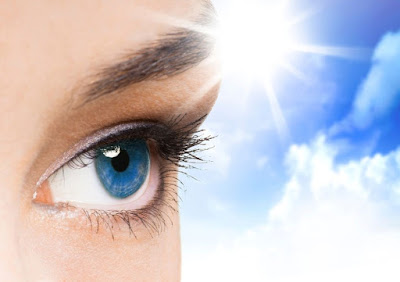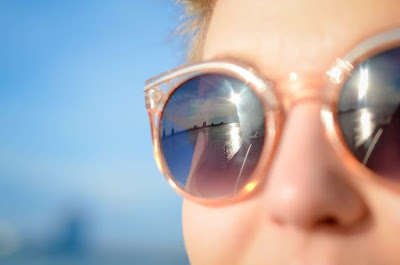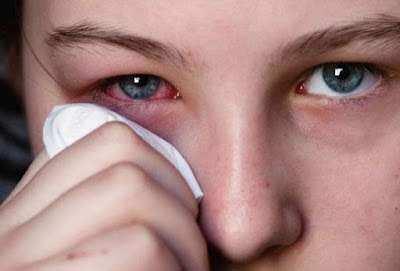EYE PROTECTION TIPS FOR SUMMER
 |
| SUMMER EYE PROTECTION TIPS |
In summer, eye problems increase, and in the same way that
the skin is protected from solar radiation, special precautions must be taken
with the eyes.
Among the main factors that can damage our eyes we
highlight: the high environmental luminosity, exposure to sun and chlorine from
swimming pools, high temperatures, the dryness of the environment and poor
protection when practicing certain sports. Here is a series of basic tips so
that you do not lose sight of your wellbeing during the summer:
Protect your eyes from ultraviolet rays
 |
| save your eyes from rays of the summer sun |
Have you ever had a red and painful sunburn? Well imagine
that burn in your corneas. This is what happens if you do not protect your eyes
against the strong rays of the summer sun with a good pair of sunglasses. They
do not have to be very dark or too expensive. Just make sure that they are
approved to block both UVB and UVA rays. UV-blocking contact lenses can also
help protect against dangerous UV rays. Although they do not replace
sunglasses, they offer complementary protection
Sunglasses
It should be noted that the use of glasses that only have
colored crystals, but do not protect against ultraviolet radiation, is more
harmful than not wearing sunglasses. This is due to the fact that, when the
luminosity decreases, the pupil dilates, being therefore unprotected against
ultraviolet radiation and its consequent negative effects on vision.
 |
| Use Sunglasses in summer |
Sport activities
Many of the ophthalmological emergencies in summer are
derived from sports without proper eye protection. Such is the case of sports
that use small balls such as tennis or paddle, where there is a likelihood of
receiving an impact. In the practice of cycling or swimming, the protection of the
glasses can prevent the entry of foreign bodies and eye irritation by the
chlorination of water, respectively.
Infections
 |
| Summer Eye infection tips |
Summer is a favorable period for the transmission of eye
diseases, whether bacterial or viral, such as conjunctivitis and keratoconjunctivitis.
If symptoms such as itching appear, stinging should never rub the eyes as it
will cause an increase in inflammation and discomfort, it is best to go to the
ophthalmologist. Contact lenses should never be used in the sea or in the pool,
as they can be contaminated by water and cause very serious infections in the
eye.
Dryness of the environment
It is produced, above all, by heat in areas far from the sea
and by prolonged exposure to air conditioning. The dryness causes a greater
evaporation of the tear, giving rise to the sensation of dry eye, of foreign
body, stinging, heaviness and desire to have the eyes closed. If you suffer
these symptoms for a long time, you should see a specialist to prescribe the
most appropriate treatment.
Allergies
The decrease in rainfall that occurs in summer increases the
number of particles suspended in the air and generates a charged environment
capable of causing ocular allergies. It is convenient to use sunglasses to
reduce the contact of allergens, put a special filter in the air conditioner,
reduce outdoor activities until midmorning and use swimming goggles, since
chlorine worsens allergic conjunctivitis.
If you feel irritation, wash your eyes
 |
| Tips to take care of eyes |
There are few creams, sprays and chemicals that can get in your eyes during the summer. Sunscreens are great for the skin but not for the eyes; therefore, choose those that are resistant to water so they do not run with sweat or swimming. Do not forget to wash your hands after applying sunscreen and before touching contact lenses. Poison ivy, oak and sumac produce oils that are very irritating to the eyes and require them to be washed immediately with clean water. Also wash your eyes if they come in contact with chemicals for the pool, insect repellents or water from untreated lakes and reservoirs.
Summer is a great time of the year. Follow these tips of eye
protection and enjoy the sun safely.










0 comments:
Post a Comment